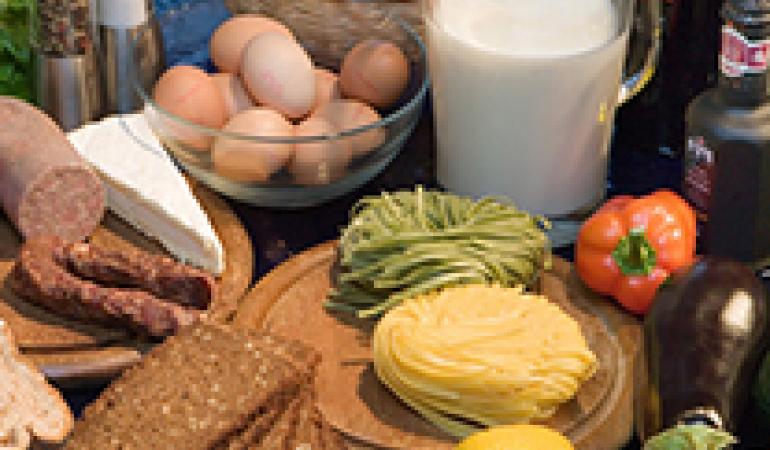
Of the foods we eat and drink, the production of meat and dairy products (milk and cheese) is associated with the largest food-related environmental impact. For a reduction in environmental impact, it would be favorable to reduce the consumption of meat and dairy foods and consume more plant-based alternatives instead, such as legumes, vegetables and grains. Research by the Dutch National Institute for Public Health and the Environment (RIVM) shows that a partial replacement of meat and dairy by plant-based alternatives is beneficial for health and the environment.
Greenhouse gas emissions
Our current food consumption puts large pressure on the environment. This is partly due to the emission of greenhouse gases along the food production chain. Thus, our daily food intake does not only affect our own health but also our living environment. RIVM calculated the environmental impact of the Dutch food consumption expressed in daily greenhouse gas emissions. Our research showed that approximately 40% of food-related greenhouse gas emissions relates to the consumption of meat and cheese. Beverages contribute about 20% to the greenhouse gas emissions. Of the drinks, soft drinks and dairy drinks contribute most among children. In adults, soft drinks, dairy drinks, coffee and alcoholic drinks are the most important drinks.
Sustainable diets
A scenario analysis shows that when children from 2 to 6 years replace meat and dairy products by plant-derived substitutes on a basis of two days a week, the amount of saturated fat decreases and the fiber content of the diet increases. The intake of vitamins and minerals remained adequate. When full replacements are made, the risk of inadequate intakes increased for some vitamins and minerals, according to this scenario study. Partially replacing animal foods by plant-derived substitutes contributes to a healthy and environmentally friendly diet for children in this age group.
The results of these RIVM studies on sustainable food consumption among the Dutch population were published in the scientific journal "Public Health Nutrition".